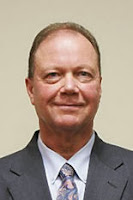The Alabama Department of Transportation wants to do away with a Huntsville camp for the homeless. Some DOT bigwigs want to built a new camp for the (mostly) men who live under bridges in the Madison County seat. That idea in itself is controversial, but let's consider just the problem of not having a home, and, yes, there are those in the Shoals who do not.
Some of these are exploited by relatives. Others have had illnesses. There's not just one agency which helps those that far down on their luck, and many turn their backs on them. While the Salvation Army is indeed a church, it at least provides temporary shelter for some of these homeless. Kudos to the SA and other organizations which help those in a great time of need.
Do all want to be helped? Sadly, no. The following true stories are not to discourage anyone from helping those truly in need, but are related to show just what alcohol can do to a once productive person.
"Dave" lived and worked in Huntsville. He drank after he left work and all weekend. He made good money in construction, but spent the most of it on liquor, preferring booze even to a roof over his head. When he was hospitalized due to a work-related accident, he chose to be released to a men's shelter rather than go to his brother's home where he would not be allowed to bring potables.
"Les" was much closer to home. He grew up in East Florence and had fallen victim to alcoholism early in life. He drew a small veteran's benefit and some food stamps. It was never enough to support his need for drink, and he eventually moved into a cave on an East Florence hillside.
A small grocer took pity on Les and gave him a sandwich each day. One day the grocer noticed his Nyquil stock was diminished quite regularly, but he never remembered selling any of the cold medicine. A visit to the small cave across the street found Nyquil bottles littering the ground around Les' makeshift home.
How do you help these people? Should we? At least in Les' case, he had served his country. Both Les and Dave had once been productive members of society. Should we ignore them because we have no money? Or are we ignoring them because we (read: government) choose to spend money on those who are not even citizens?
And what if these men totally refuse help? That's the ethical rub, isn't it?
Shoalanda































1.) Props on the name. Love word play.
2.) Don't let all this extra attention from the Vina scandal get to your head. Sex sales. ***** "journalism" doesn't, so all of this should go away quickly.
3.) I'm fine with you saying terrible things about Vina. It's the business, so I understand.
4.) I do, however, take offense to this article. "Alabamians first?" "We see out tax dollars wasted on those who have no love for our county, much less citizenship."?? Pray tell, Ms. Shoalanda, how do you have any right to say that these people have no love for this country? Because I never risked my life to be here, travelled thousands of miles through dangerous territory in total fear of being found out to be here, nor have I been separated from my family to be here. Have you?
I can handle the criticism of teachers, principles, schools, etc. for sex crimes, but I so very desperately need to know where do you get off setting the bar for what is considered love of this country?